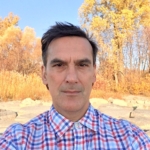Canada’s next prime minister has a “scabrous” homosexual as his great, great uncle.
In The Russian Album, Michael Ignatieff’s Governor General’s Award-winning memoir of his paternal grandparents, the Liberal opposition leader notes his grandmother Natasha’s uncle, Prince Vladimir Mestchersky, was known as the “Prince of Sodom.” Mestchersky was the editor of the leading reactionary paper in late-19th- century Russia, The Citizen. “‘Petty informer, tattler, toady, creature of perverted sexual taste, pulp novelist, embezzler’ — the gossips did not spare him,” writes Ignatieff. “It was said that his wife caught him in flagrante with a trumpet player of the Guards. It was whispered the Prince also dressed up in women’s clothes. Yet his morals apparently did not bother those who read him for his opinions…. There were few makers of opinion more to [the Tsar’s] taste than Prince Mestchersky.”
How glorious. Not only do we have a literary prime minister-in-waiting with noble ancestors — his grandmother was a princess, his grandfather a count — Ignatieff has vibrant lavender flowing in that blue blood of his.
That knowledge must drive plain old Stephen Harper of Leaside, Ontario around the bend (though I doubt he’s read it — too busy working on that hockey book, I gather).
Mestchersky garners only a brief mention in Ignatieff’s 1987 book. (He gets considerably more ink in Alexander Poznansky’s 1991 biography of Piotr Tchaikovsky. The prince and composer went to school together and ran in the same homosexual circles. It was Mestchersky who arranged for separate compartments for Tchaikovsky and his new wife when the composer nearly lost his mind on his honeymoon train journey.)
The Russian Album is a beautifully written book that showcases an historian’s unwavering commitment to the truth, warts and all, matched by a novelist’s empathy and imagination. Ignatieff omits nothing: The competing political platforms within the family, the anti-Semitism nor the class myopia. But he also draws out people’s strengths, their peculiar kindnesses and endearing quirks of personality. Prerevolutionary Russia flashes vividly to life through a remarkably personal prism.
There is a melancholic air suffusing the whole book; Ignatieff expresses his doubts about the project, exposes the ironies. The opening chapter is a perceptive rumination on photography, memory, identity and history, encompassing Susan Sontag, Vladimir Nabokov, Roland Barthes, Matisse and poetry by Louise Gluck and Mark Strand. “Already I am so far away from what happened, so much a Canadian born of this time and place and no other, that I feel fraudulent in my absorption in the vanishing experience of another generation,” writes Ignatieff. “Yet so swiftly does time move now that unless I do my work to preserve memory, soon all there will be left is photographs, and photographs only document the distance that time has travelled; they cannot bind past and present together with meaning.”
This chapter articulates questions I’ve long asked myself, as the child of immigrants, bewitched by photos of a seemingly romantic past not mine. What power do these images exert? What do I do owe the faces staring out at me? Can the distance between us be bridged meaningfully?
When was the last time a politician helped you figure out such bedrock issues in your own life?
In attack ads approved by Prime Minister Harper, Ignatieff stands accused as an outsider, a non-Canadian, making a cynical grab at power. As if someone who had lucrative careers in the US and UK had nothing better to do than try to run this fractious middle power of a country. The irony being, it’s Harper who is the cynical strategist, jettisoning principles and demonizing opponents in a craven quest for power.
Ignatieff is author of 17 books, including three novels (one shortlisted for a Booker). His latest, True Patriot Love, is a memoir of his mother’s family of “high-minded Nova Scotians,” the storied Grants and Parkins. Public service is a constant refrain in both family memoirs; it’s as if Ignatieff is destined to serve.
Obviously a great writer does not necessarily equal a great politician, but an intelligent, compassionate artist is worth my vote. And scabrous homosexuality.
Oh, and I call dibs on Zsuzsanna Zsohar drag.

 Why you can trust Xtra
Why you can trust Xtra


